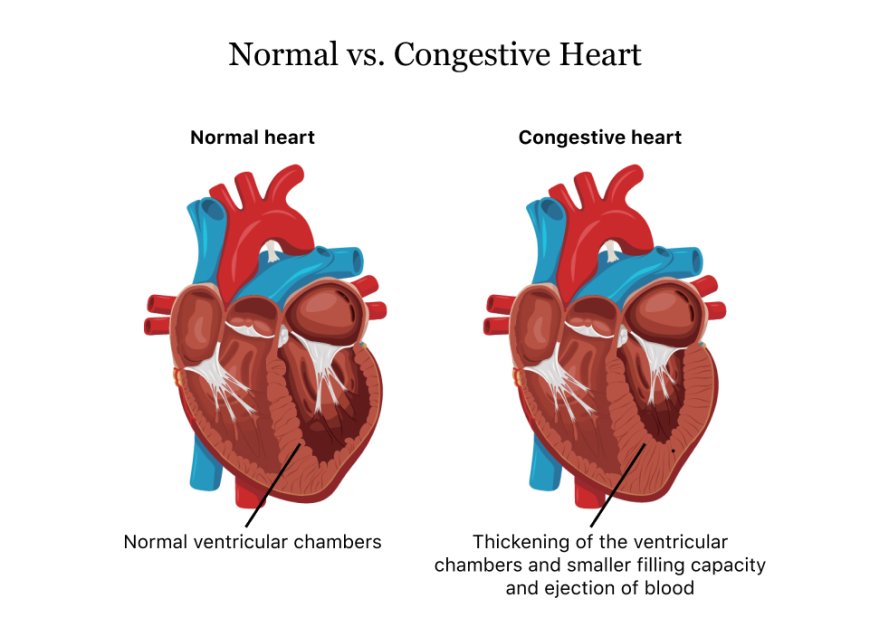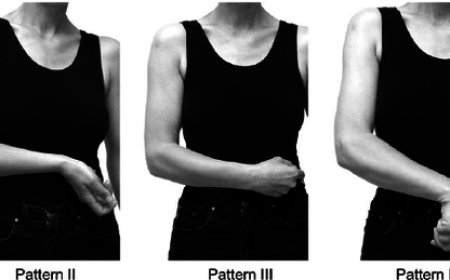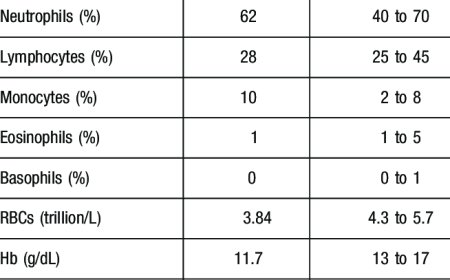Congestive Heart Failure(CHF)

Introduction :
In this article, we will embark on a journey to comprehend Congestive Heart Failure (CHF), a condition that affects some people in India. We'll explore what CHF is, its signs and symptoms, causes, risk factors, types, diagnostic tests, treatments, complications, and prevention techniques, all explained in simple language for our 10-year-old readers.
Signs and Symptoms:
CHF can be like a whispering troublemaker in the heart, causing discomfort and difficulty in daily activities. Some common signs and symptoms of CHF include:
- Feeling tired and weak, like we need extra rest to keep up with our friends.
- Shortness of breath, especially during activities like running or playing.
- Swelling in the legs or ankles, like wearing invisible socks that feel tight.
What is Congestive Heart Failure (CHF)?:
CHF is a condition where the heart struggles to pump blood as well as it should. It's like the heart's engine isn't working smoothly.
How Is Congestive Heart Failure (CHF) Classified? :
CHF can be classified based on the side of the heart that's affected. This helps doctors understand the best way to treat it.
Causes and Triggers:
The exact causes of CHF can vary, but it can be triggered by different things. For example:
- High blood pressure or heart diseases may put extra strain on the heart.
- Eating too much salty or unhealthy food can make the heart work harder.
Risk Factors with Examples:
Certain factors can increase the chances of a person having CHF. For example:
- People who don't eat healthy food or exercise may have a higher risk of heart problems.
- If someone has a family member with heart disease, they might have a higher risk too.
Types of Congestive Heart Failure (CHF):
CHF can be classified into two types based on which side of the heart is affected. Some common types are:
- Left-sided CHF: This means the left side of the heart is not pumping blood well, causing fluid to build up in the lungs.
- Right-sided CHF: This happens when the right side of the heart is not pumping blood properly, leading to swelling in the legs and ankles.
Diagnostic Tests and Their Use:
To diagnose CHF, doctors may use different tests to check how the heart is doing. Some common tests include:
- Electrocardiogram (ECG): This test measures the heart's electrical activity to see if everything is working as it should.
- Echocardiogram: This is like taking a picture of the heart to see how it's pumping blood.
Treatments:
Treating CHF aims to help the heart work better and keep the body healthy. Some common treatments are:
- Medications: Doctors may prescribe special medicines to help the heart pump blood efficiently.
- Dietary Changes: Eating healthy food with lots of fruits and vegetables can support the heart.
Complications of Congestive Heart Failure (CHF):
If CHF is not managed well, it can lead to more serious problems like difficulty breathing and not being able to do fun activities.
Prevention Techniques:
While CHF may not always be preventable, some techniques can help keep the heart healthy. For example:
- Eating a balanced diet with lots of fruits and vegetables.
- Staying active with fun games and sports to keep the heart strong.
Remember, just like we take care of our favorite toys and keep them in good shape, taking care of our hearts is essential too! If anyone feels tired or experiences heart trouble, it's crucial to talk to a healthcare expert who can provide the best advice and care. With a strong and healthy heart, we can embrace every joyful moment in India's beautiful world!
What's Your Reaction?
 Like
0
Like
0
 Dislike
0
Dislike
0
 Love
0
Love
0
 Funny
0
Funny
0
 Angry
0
Angry
0
 Sad
0
Sad
0
 Wow
0
Wow
0







































































